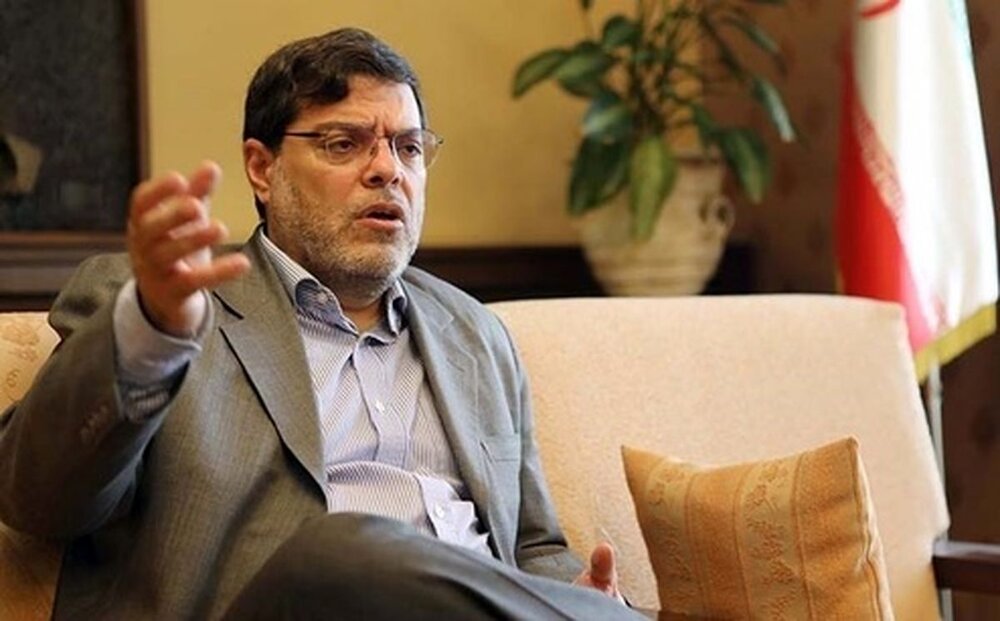JCPOA revival depends on lifting sanctions, offering guarantees: advisor

TEHRAN – A senior advisor to the Iranian negotiating team in the nuclear talks has said that reaching a deal with the United States depends on Washington offering sanctions relief and giving acceptable guarantees.
Mohammad Marandi, who is also a professor of American studies at the University of Tehran, said the resumption of talks does not mean that a deal is imminent because reaching a deal depends on the U.S. making the necessary decisions.
In remarks to the Qatari-owned Al Araby Al Jadeed newspaper, Marandi said Iran chose Qatar as a venue for negotiation because Qatar is a friendly country, noting that the resumption of nuclear negotiations does not mean that an agreement is in the air “because the agreement has become hostage to the will of the Americans.”
He stressed that the conclusion of the agreement depends on “lifting sanctions and providing guarantees to Iran in an acceptable manner.”
Marandi stressed that “Iran must obtain guarantees in order to make sure that America cannot easily repeat its previous behavior.”
He added, “The Americans permanently violated the nuclear agreement during the era of [former U.S. President Barack] Obama, and they broke it during the eras of [former U.S. President Donald] Trump and [current U.S. President Joe] Biden, and they pursued a policy of maximum pressure.”
Commenting on whether the resumption of negotiations means that the United States has taken its decision on the outstanding issues, the adviser to the Iranian negotiating team denied this, stressing that “the Americans have not yet made a necessary decision.”
As regards, the nature of the outstanding contentious issues that European Union foreign policy chief Josep Borrell described as “political,” Marandi noted that “Mr. Josep Borrell would like to call the issues of guarantees and lifting of sanctions as political, but from our point of view they are completely legal and technical issues.”
Marandi pointed out that "Iran will not allow America to defraud us, and therefore the issues of guarantees and sanctions must be resolved. If Mr. Borrell meant that these issues were political, he might mean that the Americans should make a political decision regarding them.”
The adviser added, “We implemented the nuclear agreement in full, both in the era of Obama when they [the Americans] violated the agreement, and then we implemented it completely for a long time during the era of Trump when he tore up the agreement. After that, we began to gradually reduce our commitments.”
He stressed that "the Americans must convince Iran that they will implement the agreement in full later, and it matters to Iran a lot because in the past they did not implement their commitments.”
Marandi said that “as regards the possible transfer of negotiations to Qatar, Iran chose it as a place for negotiations because it is a friendly country.”
He stated that “whether the negotiations take place in Vienna, Qatar or Oman, the policy of the government of Mr. (Ebrahim) Raisi is to establish the best relations with neighbors, and currently we are seeing the result of this policy.”
He referred, in the context, to the Iranian president's visits to neighboring countries and the agreements he signed with these countries within a year of his assumption of the presidency.
Regarding the future of the negotiations, the advisor stressed that “the future of the negotiations depends on the decisions of the Americans, as the Iranian government has proven its seriousness.”
He added that “Iran did not leave the negotiating table despite the Americans' exploitation of the International Atomic Energy Agency” to issue a resolution against Iran two weeks ago.
Referring to Iran's nuclear measures in response to the resolution adopted by the International Atomic Energy Agency's Board of Governors, he said, “Iran has shown very well to America that sharp and irrational American practices will face serious responses.”
Marandi concluded that “the Americans saw that Iran will act out of force, and they know that their circumstances and that of the Europeans have become more difficult because of the Ukrainian war, so concluding the agreement is in America's interests.”
Borrell revealed on Saturday evening that the next round of nuclear negotiations will not take place in Vienna because it will not be within the framework of the P4+1 group that its members are party to the nuclear agreement, saying that the negotiations will be between Tehran and Washington and may be held in a Persian Gulf country.
Iranian Foreign Minister Hossein Amir Abdollahian announced on Saturday that Iran is ready to resume nuclear talks to lift sanctions on the Islamic Republic by reviving the 2015 nuclear deal, officially called the Joint Comprehensive Plan of Action (JCPOA).
Amir Abdollahian said the decision was made after detailed and in-depth talks with Josep Borrell, the EU foreign policy chief.
“The talks to remove the sanctions imposed on Iran will be resumed soon," Amir Abdollahian said in a joint press conference with Borrell.
